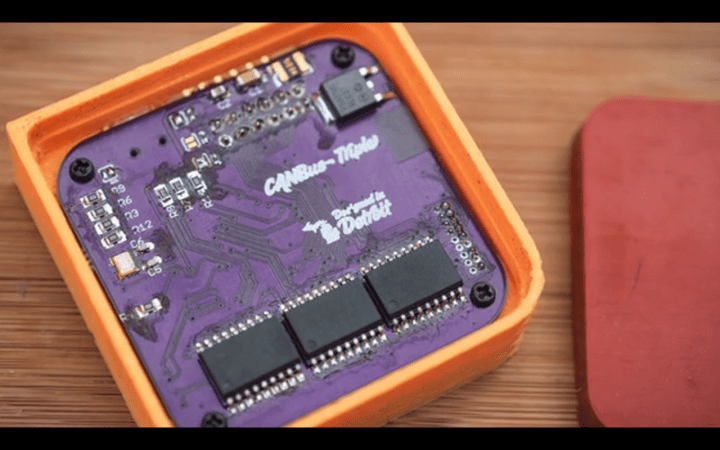
His project, dubbed the CANBus Triple, uses the Controller Area Network (CAN) language that likely already exists in your car (it’s government-mandated for all vehicles 2008 and newer) to render aftermarket ECUs, tuning boxes, and readout controllers nearly obsolete.
Modern cars are fitted with countless sensors and monitors to control things like engine temperature, air-fuel mixture, vehicle weight, and transmission speed. The Triple grants motorists control over almost any controller that uses the CAN language, making this device much more than a simple readout.
With a proper understanding of your vehicle’s communication language, you can operate almost any system on the car (windows, lights, stereo, navigation) from one interface. Simply log into the accompanying application, determine which lines of code control which feature on the vehicle, and then hack away.

“The CANBus triple is for makers and car hackers that want to augment any CAN system,” he says, “whether it’s a car, robot, or model train system.”
Related: Hemingway, Cadillacs, and Canadians: an engineering quest to build world’s fastest hot tub
The Kickstarter will be accepting contributions for 15 more days, but Kuschel has already met his $18,000 goal and then some. As of this writing, he’s hovering just under $36,000 with 437 total backers.


